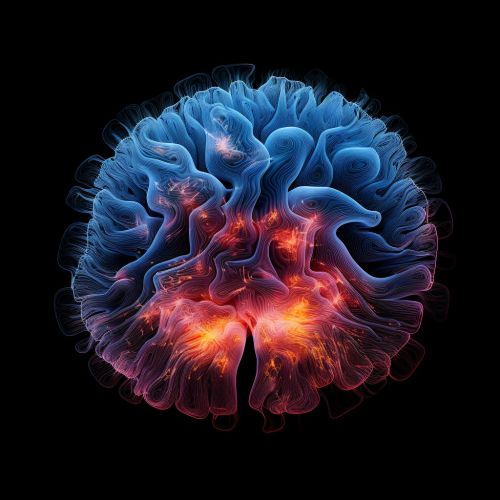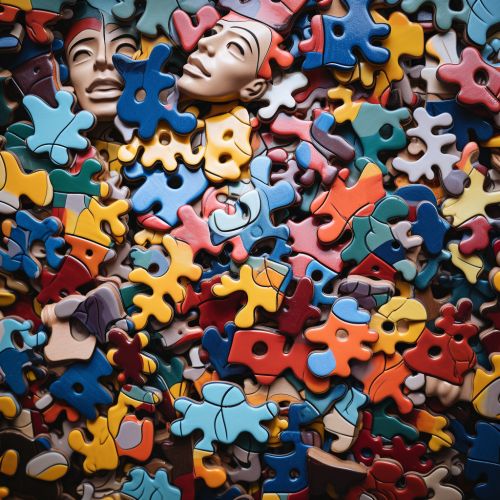Psychosis
Overview
Psychosis is a severe mental disorder characterized by a disconnection from reality. It is a symptom of various mental and physical illnesses, rather than a diagnosis in itself. Psychosis can cause hallucinations, delusions, and severe disruptions in thinking and behavior, which can be distressing and disabling.


Causes
Psychosis can be caused by a variety of factors, including mental illnesses, physical illnesses, substance use, and extreme stress or trauma.
Mental Illnesses
Certain mental illnesses can lead to psychosis, including schizophrenia, bipolar disorder, and severe depression. These conditions can cause changes in the brain that result in psychosis.


Physical Illnesses
Physical illnesses and conditions that can cause psychosis include Parkinson's disease, Alzheimer's disease, HIV/AIDS, and certain types of epilepsy. These conditions can cause changes in the brain that result in psychosis.
Substance Use
Substance use can also lead to psychosis. This includes the use of drugs such as marijuana, cocaine, and amphetamines, as well as alcohol. These substances can cause changes in the brain that result in psychosis.
Stress and Trauma
Extreme stress or trauma can also lead to psychosis. This can include experiences such as war, natural disasters, or physical or sexual abuse. These experiences can cause changes in the brain that result in psychosis.


Symptoms
The symptoms of psychosis can vary, but they generally include hallucinations, delusions, and disorganized thinking and behavior.
Hallucinations
Hallucinations are one of the most common symptoms of psychosis. These are experiences of sensations that are not real, such as hearing voices, seeing things that are not there, or feeling things that are not present.
Delusions
Delusions are another common symptom of psychosis. These are false beliefs that are not based in reality, such as believing that one is being persecuted, that one has special powers or abilities, or that one is being controlled by outside forces.
Disorganized Thinking and Behavior
Disorganized thinking and behavior are also common symptoms of psychosis. This can include incoherent speech, difficulty concentrating, and bizarre or inappropriate behavior.


Diagnosis
The diagnosis of psychosis involves a thorough medical and psychiatric evaluation. This includes a physical examination, laboratory tests, and a psychiatric assessment. The goal of the evaluation is to identify the underlying cause of the psychosis, which can guide treatment.
Treatment
The treatment of psychosis depends on the underlying cause. It generally involves a combination of medication, psychotherapy, and social support.
Medication
Medication is often used to treat psychosis. This can include antipsychotic medications, which can help to reduce the symptoms of psychosis.
Psychotherapy
Psychotherapy, or talk therapy, can also be helpful in treating psychosis. This can include cognitive-behavioral therapy (CBT), which can help individuals to manage their symptoms and cope with their illness.
Social Support
Social support is also important in the treatment of psychosis. This can include support from family and friends, as well as community resources such as support groups and mental health services.


Prognosis
The prognosis for psychosis depends on the underlying cause. With appropriate treatment, many individuals with psychosis are able to manage their symptoms and lead fulfilling lives. However, some individuals may experience ongoing symptoms and challenges.
